<< Previous | Displaying results 1-10 of 76 for "star of david" | Next >>
White armband with a Star of David embroidered in blue thread, worn by Dina Offman from 1939 until 1941 while in the ghetto in Stopnica, Poland.
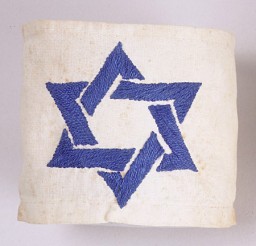
White armband with a Star of David embroidered in blue thread, worn by Dina Offman from 1939 until 1941 while in the ghetto in Stopnica, Poland.
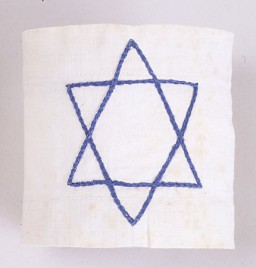
An emaciated woman sells the compulsory Star of David armbands for Jews. In the background are concert posters; almost all are destroyed. Warsaw ghetto, Poland, September 19, 1941. This photograph was taken by Heinrich Joest, a German army sergeant during World War II. On September 19, 1941, he took 140 images of every aspect of life and death in the Warsaw ghetto.
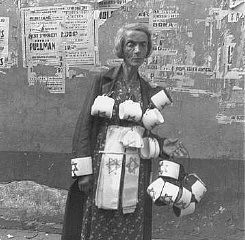
This photograph shows a Jewish boy wearing the compulsory Star of David. Prague, Czechoslovakia, between September 1941 and December 1944.
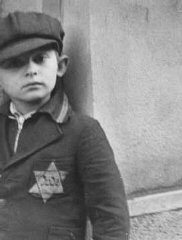
Members of a Jewish family walking along a Berlin street wear the compulsory Star of David badge. Berlin, Germany, September 27, 1941.
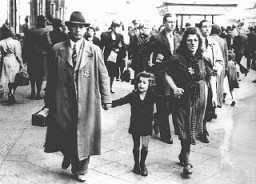
Norbert Yasharoff, a Bulgarian Jew, wearing the compulsory star of David. His young sister was not then required to wear a star. Pleven, Bulgaria, between May and September 1943.
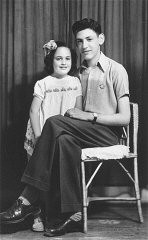
David Bayer lived in Kozienice, Poland. Explore his biography and learn about his experiences during World War II and the Holocaust.
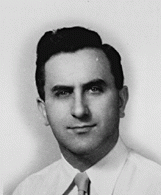
David was the second of four children born to religious Jewish parents in Kozienice, a town in southeastern Poland. His father, Manes, owned a shoe factory that supplied stores throughout the country. His mother, Sarah, took care of the home and children, and helped in the factory. Kozienice had a thriving Jewish community that constituted over half of the town's population. 1933–39: For most of the 1930s, David spent his days going to school, playing sports, and working in his father's shoe factory.…

The Nazis used color-coded badges sewn onto uniforms to classify prisoners in the camp system and to easily identify the alleged reason for an individual’s incarceration.
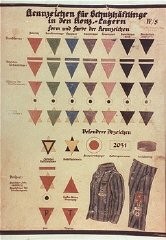
Nazi officials implemented the Jewish badge as a key element in their plan to persecute and eventually destroy the Jewish population of Europe. Learn more
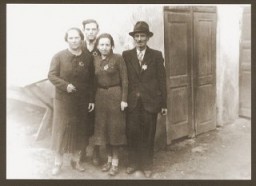
We would like to thank Crown Family Philanthropies, Abe and Ida Cooper Foundation, the Claims Conference, EVZ, and BMF for supporting the ongoing work to create content and resources for the Holocaust Encyclopedia. View the list of donor acknowledgement.